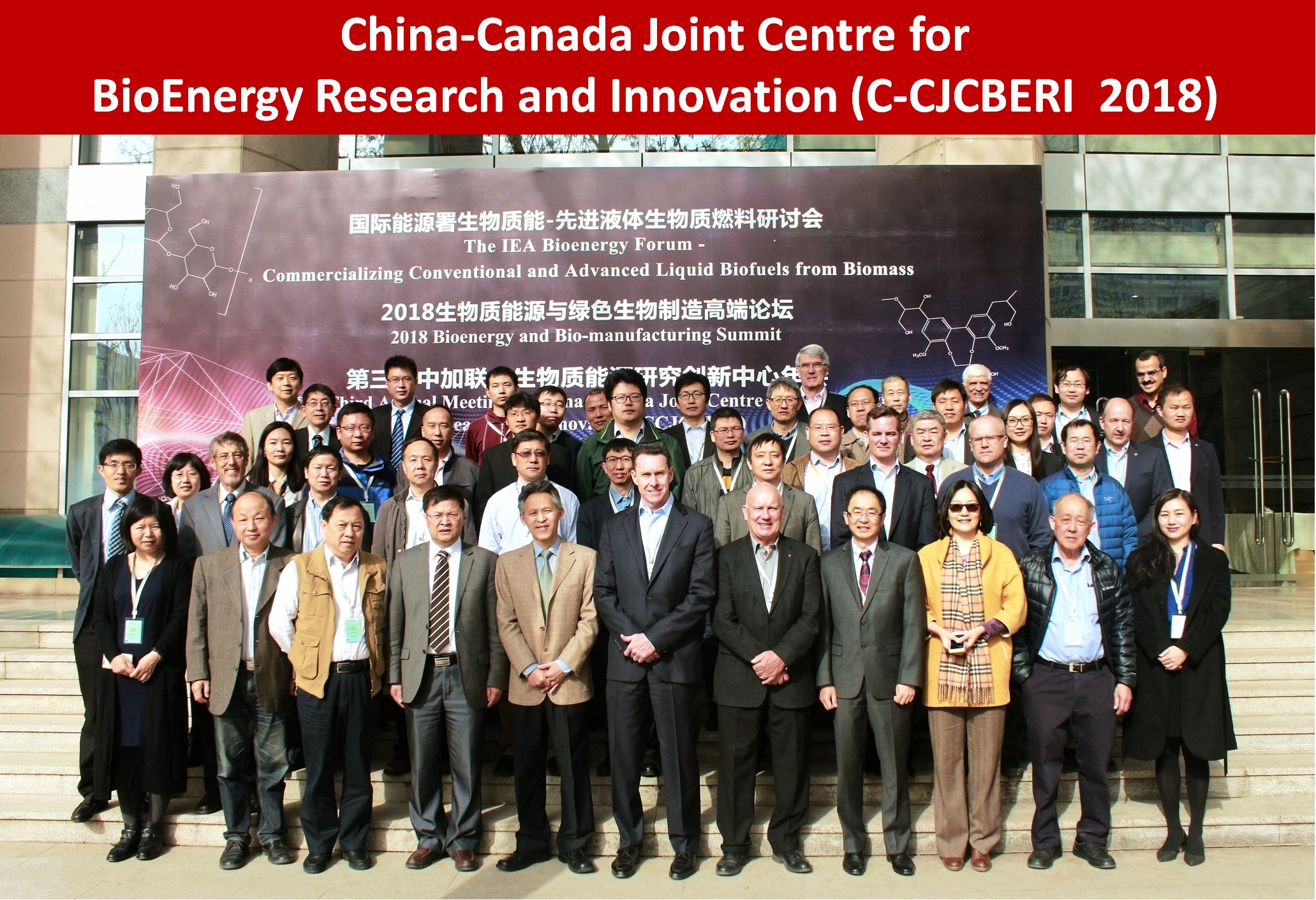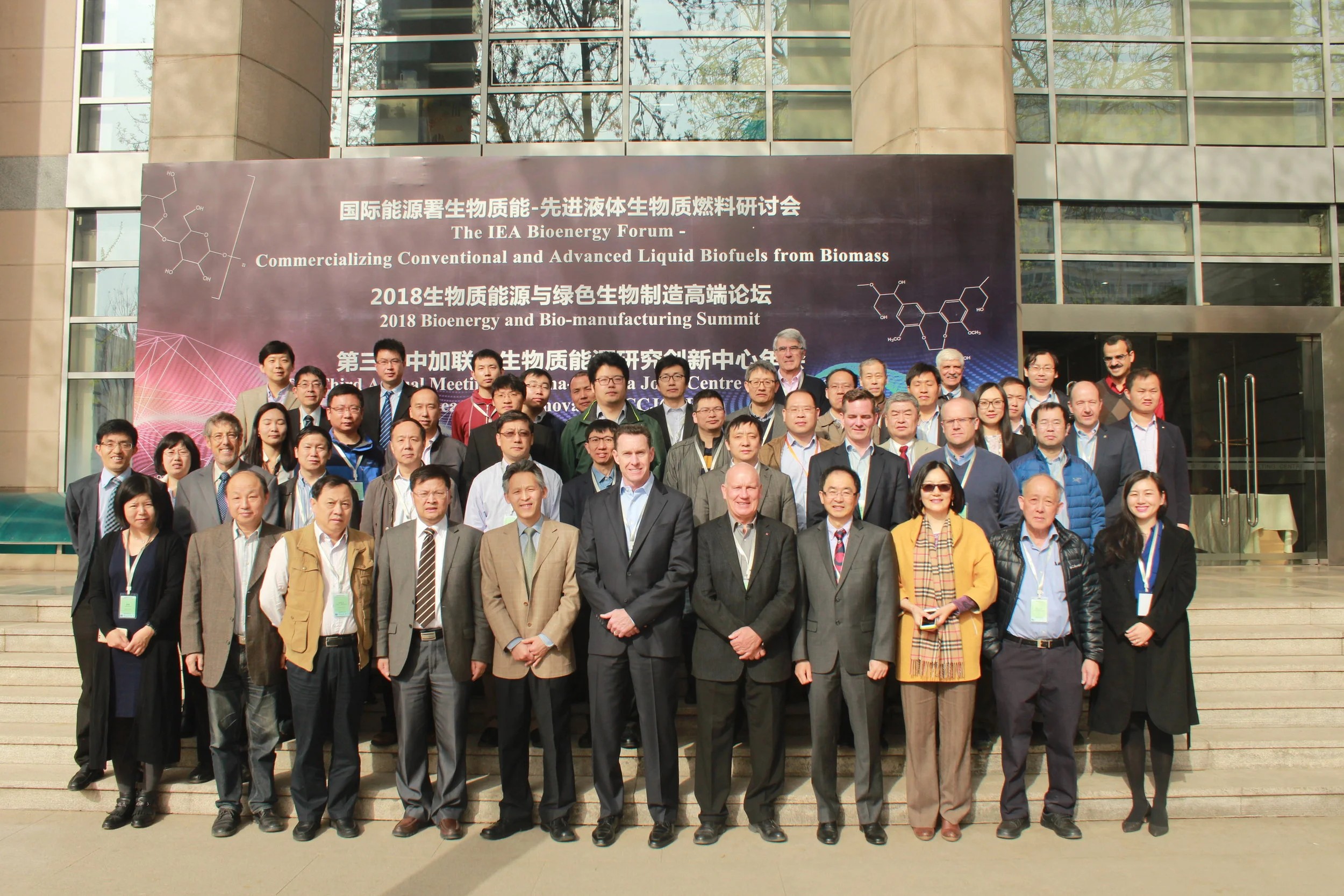On April 10th, 2018, the Third Annual Meeting of CCJCBERI was successfully held at the Beijing University of Chemical Technology. More than 70 participants from governments, research institutes, and other organizations in China, Canada, and the US gathered together to review the progress of the center, share the latest research and development work, and plan for the next three years.
Mr. Jianing Cai, Deputy Director of the Department of International Cooperation of the Chinese Ministry of Science and Technology, attended the meeting and delivered an opening speech. He mentioned that Clean Tech is an important component of China-Canada science and technology cooperation. The "China-Canada Action Plan for Science, Technology, and Innovation (2016-2018)" signed by government departments of China and Canada in 2016 listed CCJCBERI as a recognized program. Recently, the Chinese Ministry of Science and Technology has released call-for-proposals for major international cooperation in scientific and technological innovation specifically to recognized programs under the above-mentioned “Action Plan”. Our Centre’s members are welcome to apply. The Department of International Cooperation is also willing to actively discuss with Canadian government agencies on promoting collaborations under such existing mechanism.
Xiaotao Bi and Tianwei Tan, Directors of the Center, reviewed the achievements of the Center in recent years. Since its establishment, partner organizations have grown from 11 to 25 and faculty members have grown from 25 to 69. Members of the two countries have jointly applied for nearly 10 funding, exchanged over 10 students and scholars, and co-authored a number of publications. Some newly incorporated members and guests from the International Energy Agency (IEA) and the National Renewable Energy Laboratory (NREL) gave presentations to introduce their organizations and latest work. After lunch, the participants discussed the future development plan of the Center, mainly including the following topics:
1. Co-supervising and training of students and scholars
Currently, most programs are short-term visits and exchanges supported by the Chinese Scholarship Council or their home institutes. We are working on joint degree programs among the Center’s member universities for undergraduates, Master’s, and PhDs.
2. Collaborative research
Members from the two countries will actively apply for all possible funding, such as the above-mentioned program by the Chinese Ministry of Science and Technology, programs by the Canadian Natural Sciences and Engineering Research Council (NSERC), and the Mission Innovation in Clean Energy by Natural Resources Canada, etc. And it’s suggested to strengthen the participation of industry members, e.g. proposals may be more market-oriented and target on industry needs.
3. Technology demonstration and industrialization
Actively promote the demonstration and industrialization of technologies – facilitate our technologies to eventually enter markets. The Center has been incorporated a number of industry members, and the developed technologies of some researchers have entered the pilot and demonstration stages. The governments of the two countries, especially the Chinese government, have made great efforts to support industrialization. The Center’s members will work together to speed up the progress.
4. The Annual Meeting in 2019
The 2019 Annual Meeting is proposed to be held concurrently with other conferences on biomass and bioenergy. It should be open to broader attendees – not only our members. A series of conferences/meetings on different bioenergy subjects may be considered.
Overall, this Annual Meeting was successful and fruitful with active interactions and thoughtful discussions. All members are full of confidence and enthusiasm for the next step of the development of the Center. We are ready to create new outstanding achievements in the next three years.














